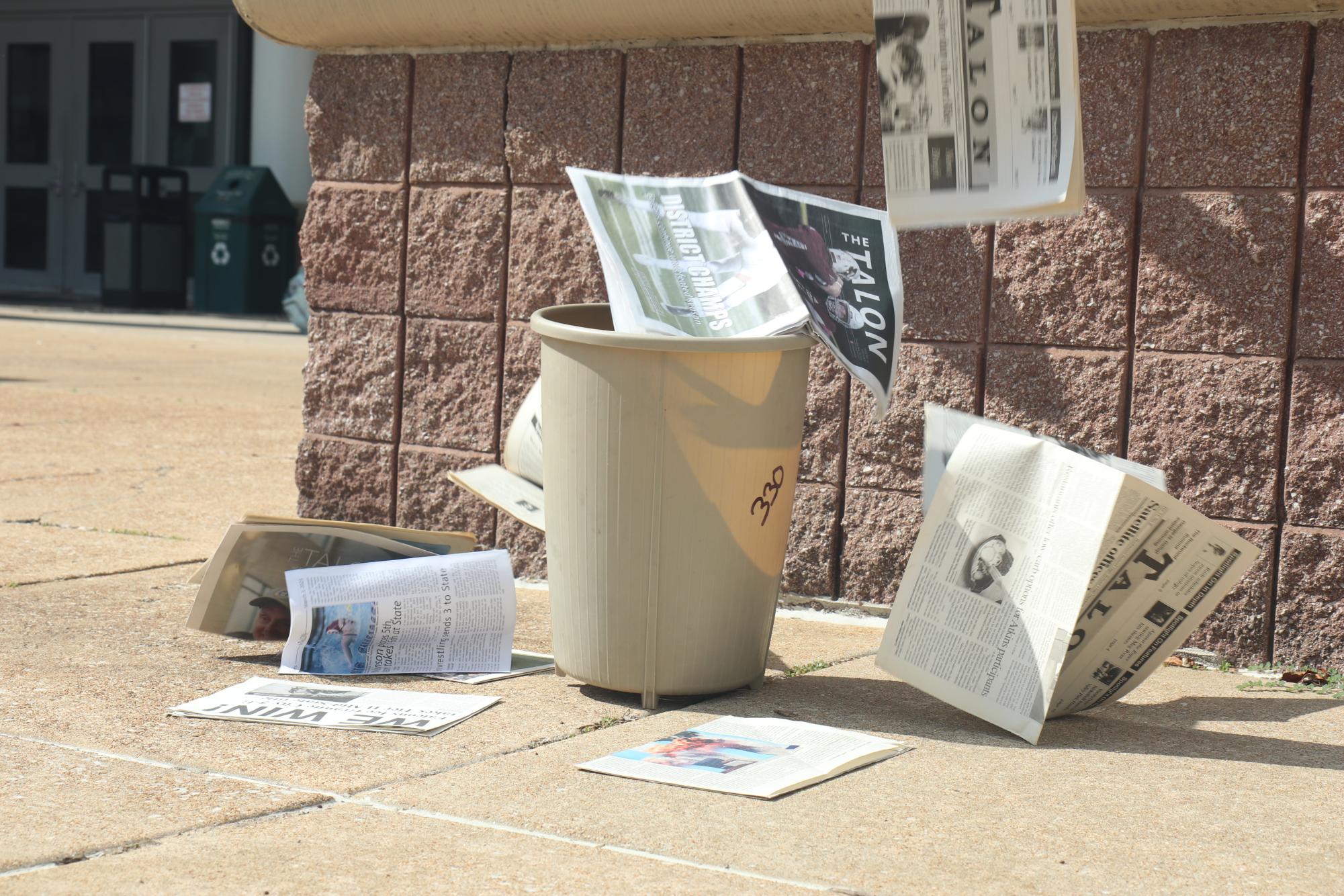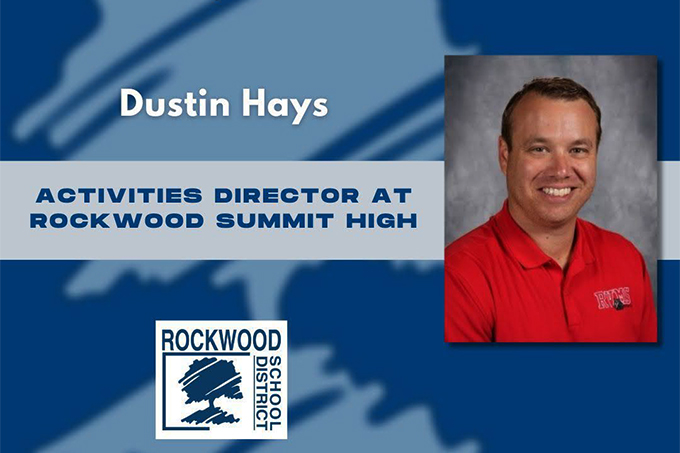Only about 32 percent of waste is recycled in the United States annually, according to the U.S. Environmental Protection Agency. Despite this, 75 percent of waste in America is recyclable, meaning that 43 percent of materials do not get properly recycled. The Rockwood School District does, in fact, recycle waste, but it’s up to the teachers and students to make it happen. Climate Change has increased the global temperature up to the highest point since 2,000 years ago. The main problem? Humans.
Since the school’s recycling program has fallen off, every bit of waste that doesn’t make it into the correct bin goes straight to landfills. Math teacher Thomas Cassilly said he is very passionate about this problem.
“It’s pretty wasteful that we don’t recycle. We go through a ton of paper at school, and paper is easily recyclable, so I’m not too sure why we stopped. I think it’s important to recycle because if you can reuse/repurpose something, then you might as well. Otherwise, it’s going to end up in a landfill or some animal’s stomach,” Cassilly said.
Contrary to popular belief, Rockwood Summit actually has a recycling bin out back which gets emptied weekly. Production manager Victoria Voss said it’s usually up to the teachers to monitor the recycling in their classrooms, but that most don’t do it because of the time commitment.
“[The teachers] are understaffed to take the recycling out. I take my own recycling out, or have Mrs. [Karen] Droege, downstairs with her SSD kids, [take the recycling out.] They’re coming twice a week now to take my recycling out,” Voss said.
It’s not just the school’s problem that they don’t recycle; it’s the students’ as well. Cassilly said that he constantly sees students who are not following the rules when recycling waste.
“When [students are] not leaving their trash all over the hallways, classroom floors, or around campus, I see kids throwing trash into the recycle bins, and recyclables into trash cans,” Cassilly said.
Building Principal Dr. Emily McCown said that the recycling program at Summit has dwindled over the course of her career, especially in the past few years.
“We really don’t have a recycling program any longer. We’ve struggled to find a group that is willing to pick up the recycling materials from the classrooms. In order for us to do recycling we have to have a group willing to take charge of those efforts as that is not a part of custodial duties,” McCown said.
The cause of why most students and staff no longer recycle is unclear, Cassily believes that it could be because of people’s perspectives.
“That attitude of people not even making an effort could very possibly be a reason why the school stopped recycling,” Cassilly said.
It only takes one single piece of trash or food to contaminate a whole bin of recycling, causing it to no longer be usable. According to Head Custodian Donald Jessen, most of the recycling taken out back is never from teacher’s classrooms.
“We just don’t recycle what is in the teachers rooms anymore. We have found that there is usually food contaminating recycling in the classrooms. When it comes to recycling, we still do [it] for the kitchen and production room, plus other parts of the building,” Jessen said.
While people talk of the significance of reducing and reusing waste, Cassilly explained how it’s also important to note that a lot of the responsibility falls on the students.
“When trash gets thrown into recycle bins, it contaminates the whole bin and it all gets thrown out. I don’t know if our students realize that, or if they just don’t care. From the amount of litter I see lying around the school, I’m leaning towards them not caring,” Cassilly said.
To bring awareness of our recycling problem, it needs to take a whole-school effort.
“If we want the schools to start recycling again, I think the students need to become more vocal about it and become better about putting trash in the appropriate spots, and recyclables in the correct bins,” Cassilly said.
Student organizations and clubs could also help in improving the school’s recycling problem.
“I think it’d be a great project for [National Honor Society] or maybe Environmental Club to take this on [and] to make people aware to kind of start [recycling] up again. I think [this is] really important. There is a bin out there that does recycle, and they come once a week. It’s just having the education and the awareness of putting it in the right bin,” Voss said.







Maxine • Oct 4, 2024 at 11:50 am
fire story julia!